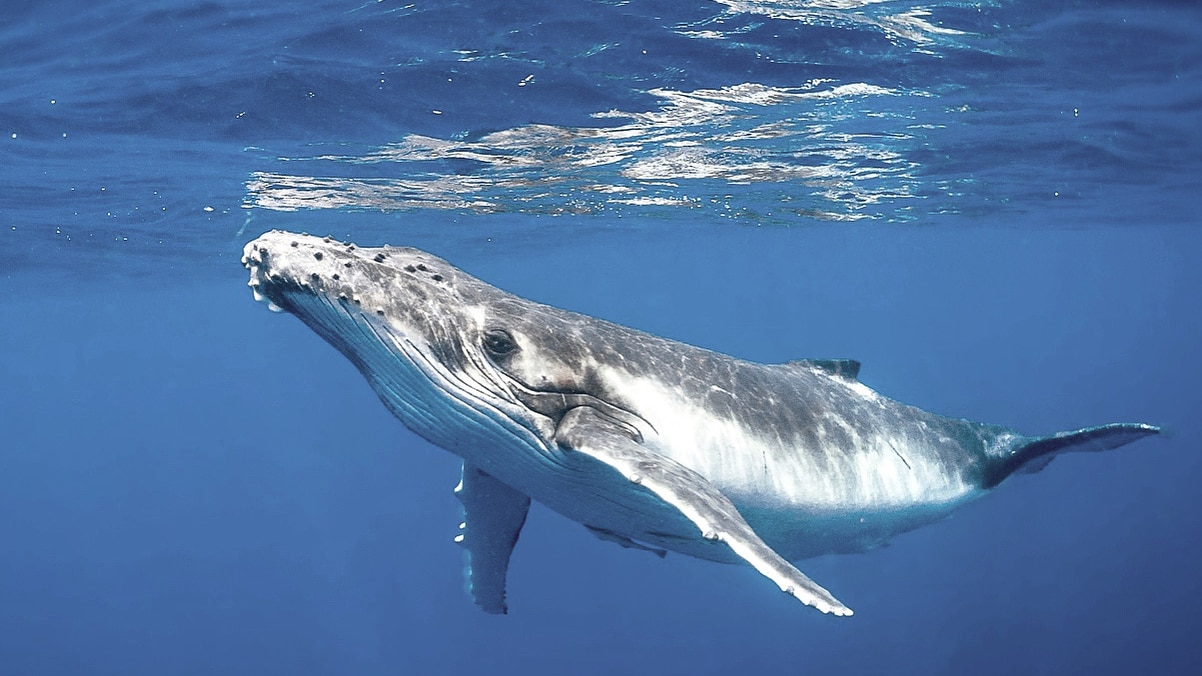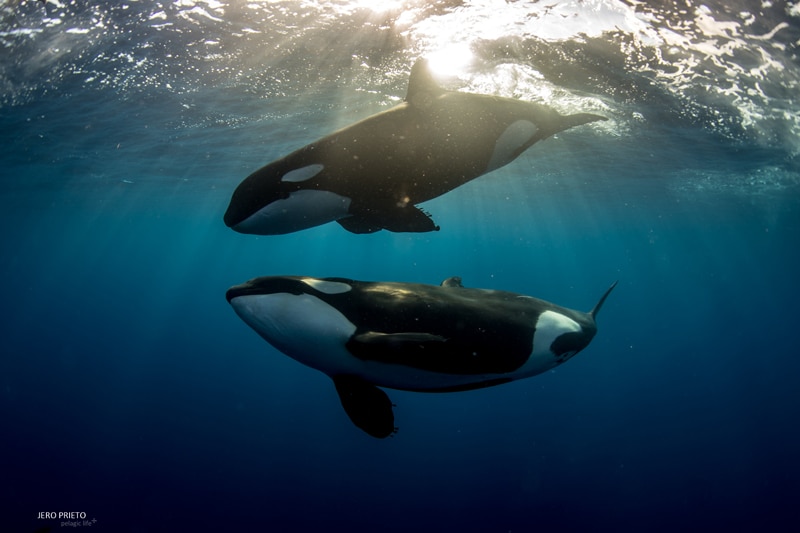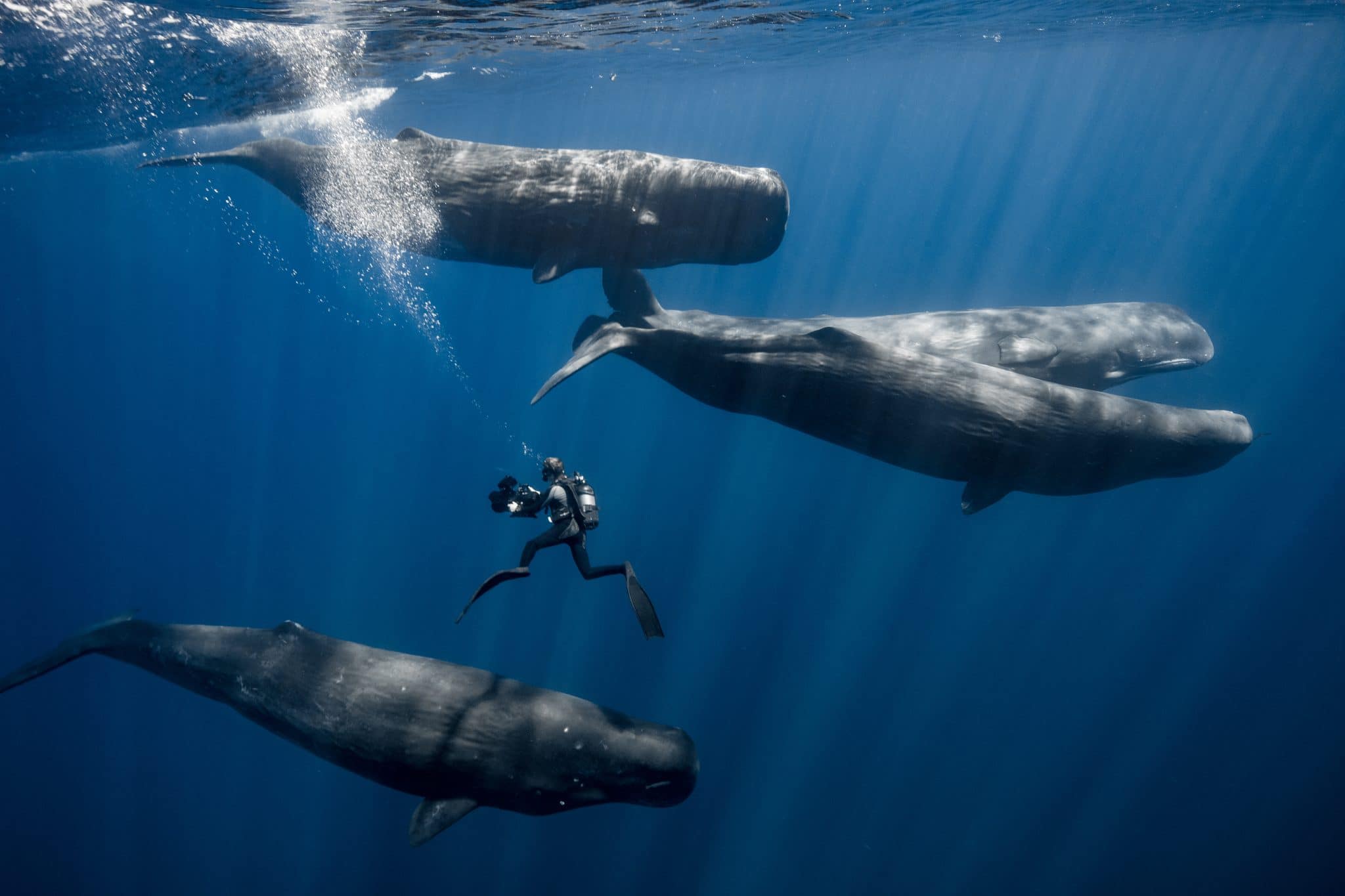Marine Life & Conservation Blogs
Six Tips on How to Help Save the Whales: Whales Need Your Help!

A guest blog from PADI to mark World Whale Day
Thanks to the brutal practice of whaling over the last century, whales are still recovering from plummeting populations: nearly three million whales were killed. Today, whales (and their dolphin cousins) face constant threats from entanglements in fishing gear, ship strikes, noise, pollution, and habitat loss. Further, plastic particles outnumber plankton in many of their key feeding grounds.
Researchers from Harvard University have determined that whales’ feeding habits actually “fertilize” phytoplankton, which in turn provides half the world’s oxygen, scientific evidence that firmly links healthy whale populations to the fight against climate change.
Whether you love whales, or not – it’s critical to protect them. Healthy whale populations play a vital role in our world’s largest and most important ecosystem – an ecosystem that provides more oxygen than all the rainforests combined is our best defence against rising CO2 levels, and provides more than ⅕ of the world’s population with food.
By protecting whales and their habitats, we are protecting… ourselves. So here’s a few easy tips from PADI on how you can take action
1. Go Plastic Free
At least 8 million tons of plastic end up in our oceans every year and more than 250 million tons of plastic are estimated to cloudy our waters by 2025. It’s difficult to wrap our heads around how much plastic that really is and even harder to stomach (pun intended) how much of this debris ends up ingested by whales and other marine creatures, usually resulting in death-by-starvation. It is one of biggest threats to all whales and dolphins occurring throughout the world’s oceans.
2. Clean up Your Act
According to the United Nations Environment Program, 8 million pieces of marine debris enter the ocean every single day. This equates to 6.4 million tons of trash each year. The majority of marine litter enters the ocean from land. So recycle whatever you can, pick up trash you find, and avoid letting balloons go.
Why not take a few hours out on a Saturday to plan a local beach clean up. Disposing of your trash responsibly and picking up other trash near waterways is a simple and effective way to help protect whales and dolphins.
3. Become a Diver; Then Dive with a Purpose
Becoming a scuba diver opens up a whole new world to you – and connects you to a global community of passionate ocean advocates. Not only can you actually enter the whale’s home and maybe – just maybe if you are lucky enough – come eye to eye with one, but you’ll also be able to take meaningful action to save them.
After you receive your open water diving certificate, you can support local communities in their protection areas through dive tourism, engage in citizen science efforts to restore the whales home (like planting corals!), get a “Whale Warrior” distinctive specialty, or even participate in a Dive Against Debris and submit a survey every time you dive. For almost three decades, divers have been partners in the fight against marine debris. Divers are adding the unique underwater perspective to this global crisis through the AWARE Dive Against Debris® citizen science program and collecting evidence to inform measures that can stop the problem at the source.
4. Support Responsible Whale Tourism
When we see something, we care about it more. So whether you book a whale watching tour, a swim with the whales journey, or encounter them during a dive trip in whale hot spots, your passion for protecting them and educating others to do the same will increase ten-fold! Your first whale encounter will make you a whale advocate for life–and you can do so with PADI Centers all over the world. It also ensures that whales are protected around the world – thanks to the tourism impact upon local economies.
5. Use Your Words, Your Wallet and/or Your Time to Make a Difference!
Making a difference can be as simple as your signature – ensuring local legislation protects endangered sea creatures and their homes. Many conservation groups rely on your help to advocate for their protection. Sign petitions or write letters to elected officials to increase protections for whales and dolphins. And if you have more time, consider volunteering. Finally, If you can afford it, support an organisation you trust by donating or even adopting a whale of your own!
6. Be a Spokesperson On Land with Whale Gear: Proceeds Protect the Whales
You can score amazing gear that celebrates and also supports whale conservation. Start meaningful conversations, shop sustainably and donate to their protection – all at once. Check out PADI Gear’s Whale Collection – with proceeds going directly towards helping to save the whales.
Header Image: Jay Clue, Dive Ninja Expeditions
Blogs
Saba’s Plan for a Coral Comeback

Saba has an exciting new initiative to restore its coral reefs. This new project, running from 2024 to 2026, will focus on reviving key species in the island’s underwater ecosystems. With a collaborative team from the Saba Conservation Foundation (SCF) and Van Hall Larenstein (VHL) University of Applied Sciences, the project aims to restore both corals as well as sea urchins.
This initiative is centered around coral restoration, specifically reviving two essential coral species—staghorn coral (Acropora cervicornis) and elkhorn coral (Acropora palmata). By mapping parent colonies and using a technique known as coral gardening, SCF will create and maintain coral nurseries. These corals will eventually be outplanted at key reef sites around Saba to not only expand the number of coral colonies, but also provide essential fish habitat. The project focusses on installing coral nurseries, training staff with the newest techniques and starting with the restoration of key reef sites.

Reef Cleaners to the Rescue
It’s not just corals getting a makeover—this project also shines a spotlight on the essential role of grazers, particularly sea urchins. VHL is leading the charge on cultivating and restocking two key sea urchin species, West Indian sea egg (Tripneustes) and long-spined sea urchin (Diadema), known for their ability to keep algae in check. By removing algae, which are important competitors of corals, they help the coral to thrive. By restoring these “reef cleaners,” Saba’s project will give corals the breathing room they need to grow, setting the stage for a healthier, more balanced marine ecosystem.
From Tiny Urchins to Big Goals
The project will be funded as part of the Dutch Government’s Nature and Environment Policy Plan (NEPP) 2020-2030 for the Caribbean Netherlands, a comprehensive initiative aimed at conserving and restoring the unique natural environments of the Dutch Caribbean islands, including Saba, St. Eustatius, and Bonaire. This project is aiming for big milestones: build and maintaining coral nurseries, the expansion of urchin cultivation facilities, and the creation of a dedicated research center. By 2026, the project hopes to ramp up coral and grazer restoration, with the ultimate goal of extending these efforts across the Dutch Caribbean. By linking local initiatives to broader regional goals, Saba’s restoration project promises to leave a lasting impact on both the environment and the community.
Find out more about the DCNA at dcnanature.org.
Blogs
Reef-World marks two decades of marine conservation: strengthening impact amid coral reef threats

Empowering ocean stakeholders to tackle future challenges and ensure the survival of coral reefs and humanity
2024 marks the 20th Anniversary of The Reef-World Foundation’s tireless efforts for global coral reef conservation. The UK charity is the international coordinator of the UN Environment Programme’s Green Fins initiative, known as the leading voice in sustainable marine tourism. Today, Reef-World released its 2023-2024 Impact Report outlining a year of substantive growth and impact in its marine conservation programmes.

Impact Report Highlights:
- Impressive improvements in environmental behaviours to protect coral reefs by the marine tourism industry as the global participation of Green Fins increases.
- Continued capacity building for government and NGO staff to effectively manage marine tourism activities in Asia, Caribbean and Red Sea regions.
- For the first time in Green Fins’ 20-year history, tourism operators have achieved ‘Best Environmental Performer’ status by demonstrating the lowest possible environmental impact in their environmental assessments. In 2024, three dive operators achieved this challenging milestone.
- Significant increases in global participation of Reef-World’s innovative digital conservation tools.
- 138 Green Fins dive operator members achieved the strict threshold for PADI Eco Center recognition.
- Developed four new educational materials and translated two into 16 languages to support the marine tourism industry in achieving sustainability targets.
- Establishing a new Reef-World Development strategy and recruiting new roles – Development and Programmes Managers.
- Reef-World’s board welcomes new Chair and Trustees strengthening organisational leadership.

Reef-World started as a one-person mission to inspire and empower communities to act in conserving and sustainably developing coral reefs and related ecosystems. Today, the team of 12 continues to meet this mission by inspiring and empowering the global marine tourism community to be exemplary sustainability leaders by using the Green Fins guidelines and tools to simultaneously use and protect the world’s precious reefs.
In April 2024, the fourth global coral reef bleaching event was confirmed. Reef-World’s work has never been more urgent as the marine environment, and the benefits they provide humanity, continue to be eroded by global threats. The reduction of local threats, like those from the marine tourism industry, is an essential step to ensuring a future where coral reefs survive and continue to support the millions of people who depend on their ecosystem benefits. Reef-World’s work buys time for coral reefs and related ecosystems to be resilient to the impacts of global threats.
“Right now our corals are facing the greatest fight of their existence as the terrifying predictions of the steps towards their complete extinction are starting to come true. But all is not lost, reefs are resilient and they have existed on this planet for millions of years. We must take action now, to buy time for reefs by reducing threats facing them and allowing them to react and adjust to the changing environment they need to survive in.” – Chloe Harvey, Executive Director
Looking Forwards:
Like coral reefs, the Reef-World team needs to be resilient in the face of the complex challenges of the conservation sector. Reef-World has invested significantly in developing a Culture of Care to ensure the well-being of its team on a daily basis, continuing to be an exemplary employer to enable its team to best achieve the mission for coral reef conservation.
With the foundations of a Culture of Care and organisational development laid, Reef-World is emerging from the end of a natural organisation life cycle, that brings the challenges of growth and scale, stronger than ever. With a new strategy in place to generate much needed resources, Reef-World is excited for the opportunities to leap forward, continue to scale our impact and lean into new innovations and untapped opportunities for marine conservation.
We continually strive to become a forward-thinking organisation that delivers on our goals and commitments to our stakeholders with fresh approaches and not being afraid of steering away from a “normal approach.” This approach is not only applied to our programmes of work but also internally and carries over to our Culture of Care for our team.” — JJ Harvey, Operations Director

The Reef-World Foundation is immensely grateful for the continued support of its grant funders: UN Environment Programme, IUCN’s Blue Natural Capital Financing Facility, Adventure Travel Conservation Fund, PADI Aware Foundation, and World Nomads Footprints Program.
Reef-World would also like to express its gratitude to international partners whose vital support has resulted in significant tangible benefits for our work and mission: PADI; Professional SCUBA Schools International (PSS); Explorer Ventures; 1% for the Planet; ZuBlu; Snorkel Venture, GSTC; Dive O’Clock; Seven Dragons; DiveAssure and Eco Beach, without whom these achievements would not be possible.
The full 2023–2024 Annual Impact Report is available on Reef-World’s website.
-

 News2 months ago
News2 months agoIconic SS United States to become the World’s Largest Artificial Reef
-

 News3 months ago
News3 months agoBook Review – 52 Assignments: Underwater Photography
-

 Gear News3 months ago
Gear News3 months agoDYNAMICNORD – New German diving brand enters the British market
-

 News3 months ago
News3 months agoExploring Cenote El Pit: A Diver’s Dream
-

 Gear News3 months ago
Gear News3 months agoTry BARE drysuits (and maybe even win one!) this Friday with Sea & Sea at North West Dive Fest
-

 Marine Life & Conservation3 months ago
Marine Life & Conservation3 months agoBook Review: Coral Triangle Cameos
-

 Blogs2 months ago
Blogs2 months agoDive the Egyptian Red Sea this Autumn with Regaldive
-

 News3 months ago
News3 months ago2024 Ocean Art Underwater Photo Competition Announced


















